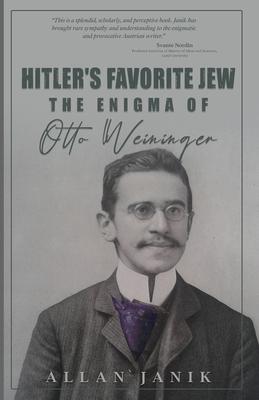This is a book about Otto Weininger, his works and their reception. Why write a book about Weininger who is usually considered to be a mad racist fanatic? One need only look to Hitler's opinion of the only "decent" Jew he had ever heard about; decent because he committed suicide upon gaining insight into his own character as a Jew. The idea of Weininger, the ultimate Jewish self-hater, is one of the dominant streams in the Weininger reception. If it were the whole story, there would be little more to say about him. Others tell us that a 23 year-old could never have been so bright as to produce the sophisticated views that Weininger did but they seem to forget phenomena like Mozart, who composed from early childhood, Georg Bchner, who produced several of the most powerful, path-breaking works in modern German literature before his untimely demise at the tender age of twenty-four and variste Galois, who left the whole mathematical world a century full of brilliant problems, writing until dawn the night before he died in a duel. There is no lack of evidence that youth can be genuinely brilliant. We begin to grasp why Weininger has been an enigma for so long at the moment when we realize that, in a curious way, without attaining anything like their achievements, he was of a similar brilliant cast of mind. The sheer breadth of his knowledge and imagination demonstrate that.

This is a book about Otto Weininger, his works and their reception. Why write a book about Weininger who is usually considered to be a mad racist fanatic? One need only look to Hitler's opinion of the only "decent" Jew he had ever heard about; decent because he committed suicide upon gaining insight into his own character as a Jew. The idea of Weininger, the ultimate Jewish self-hater, is one of the dominant streams in the Weininger reception. If it were the whole story, there would be little more to say about him. Others tell us that a 23 year-old could never have been so bright as to produce the sophisticated views that Weininger did but they seem to forget phenomena like Mozart, who composed from early childhood, Georg Bchner, who produced several of the most powerful, path-breaking works in modern German literature before his untimely demise at the tender age of twenty-four and variste Galois, who left the whole mathematical world a century full of brilliant problems, writing until dawn the night before he died in a duel. There is no lack of evidence that youth can be genuinely brilliant. We begin to grasp why Weininger has been an enigma for so long at the moment when we realize that, in a curious way, without attaining anything like their achievements, he was of a similar brilliant cast of mind. The sheer breadth of his knowledge and imagination demonstrate that.